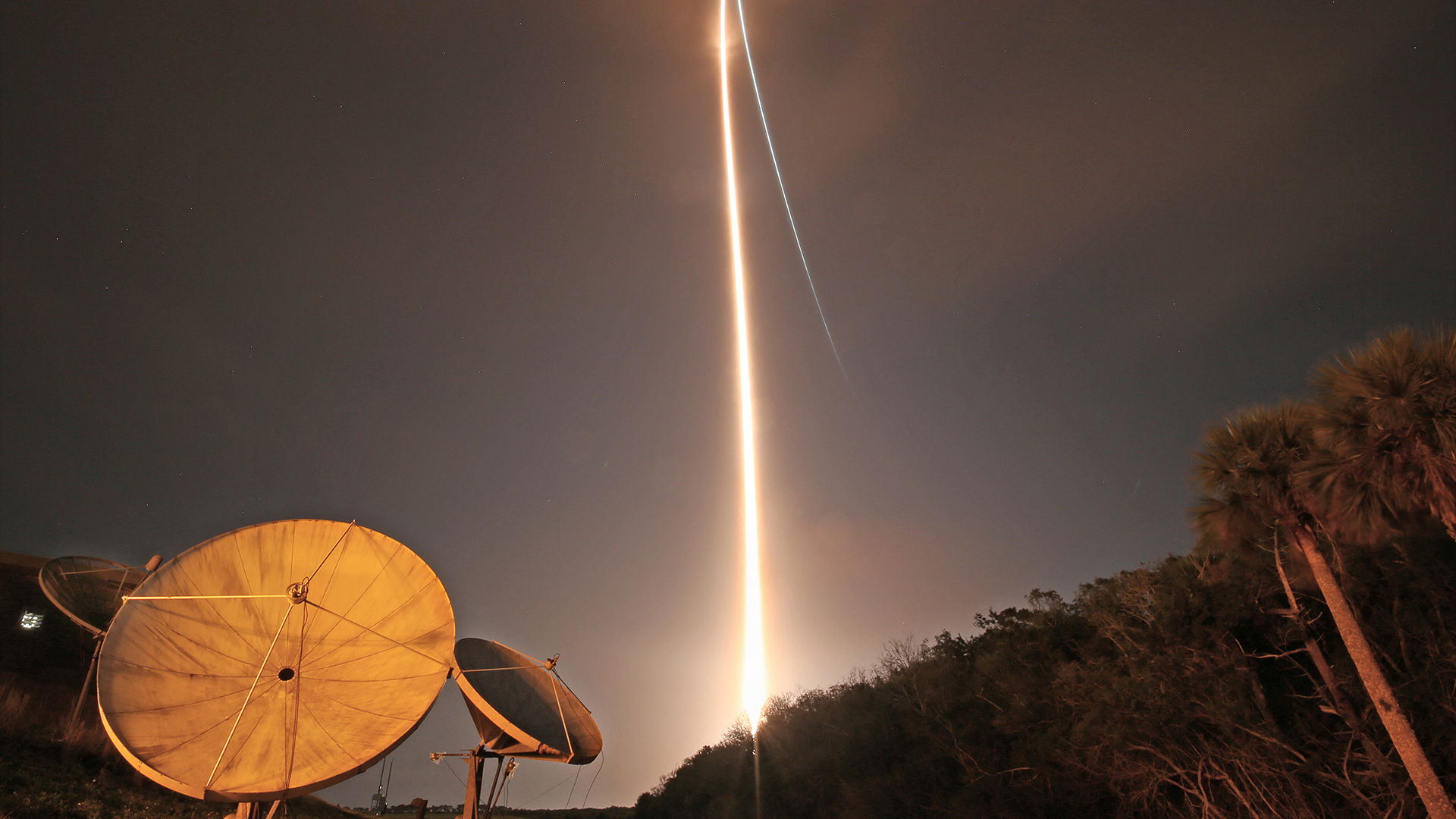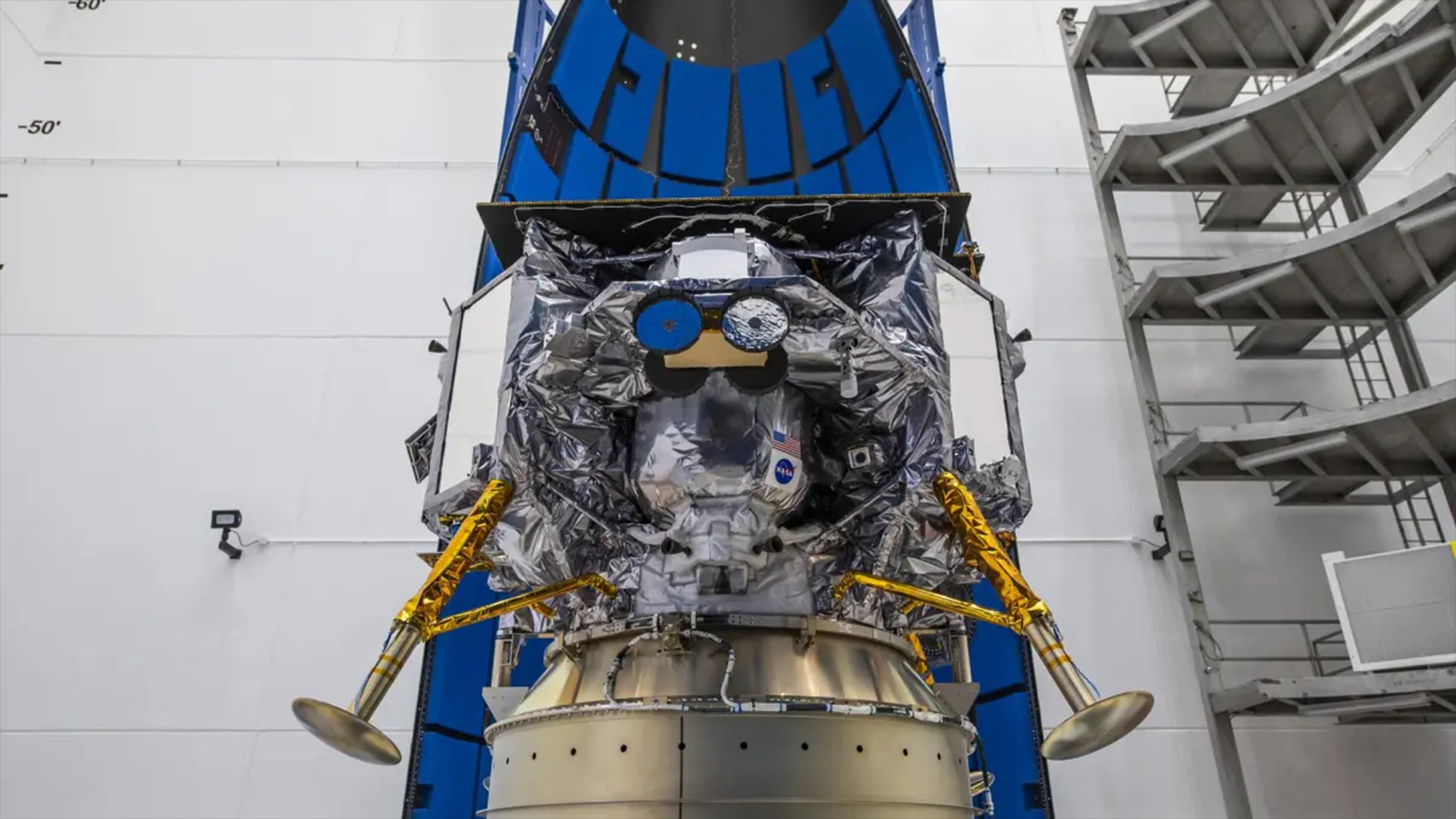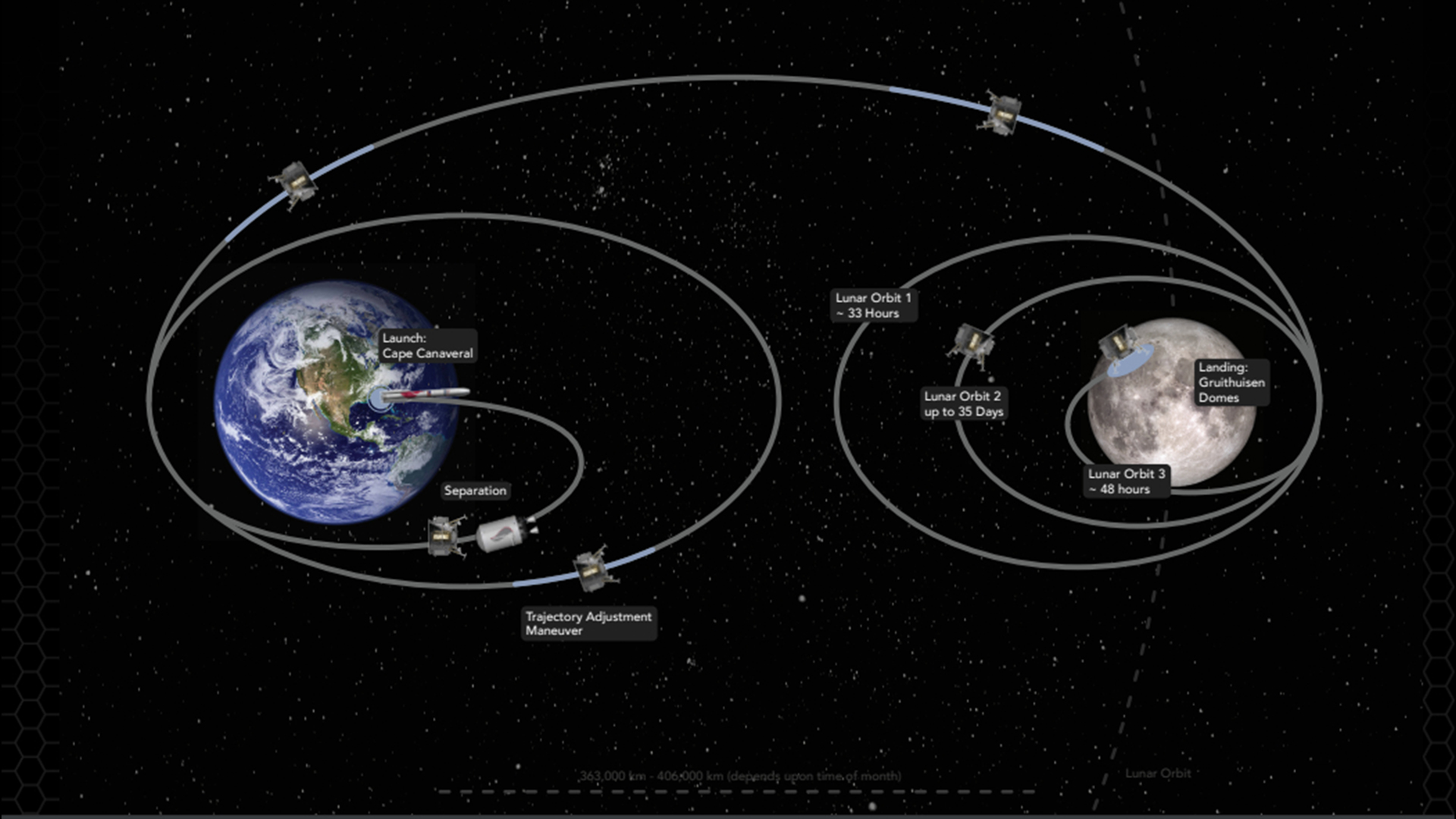Human remains blasted into space on Vulcan rocket will 'desecrate' the moon, Navajo Nation says
Astrobotic Technology's Peregrine moon lander has successfully launched into space on a brand-new rocket and will attempt to touch down on the lunar surface in February. But the lander's payload includes human remains, which leaders of the Navajo Nation claim is "tantamount to desecration."
Get the world’s most fascinating discoveries delivered straight to your inbox.
You are now subscribed
Your newsletter sign-up was successful
Want to add more newsletters?

Delivered Daily
Daily Newsletter
Sign up for the latest discoveries, groundbreaking research and fascinating breakthroughs that impact you and the wider world direct to your inbox.

Once a week
Life's Little Mysteries
Feed your curiosity with an exclusive mystery every week, solved with science and delivered direct to your inbox before it's seen anywhere else.

Once a week
How It Works
Sign up to our free science & technology newsletter for your weekly fix of fascinating articles, quick quizzes, amazing images, and more

Delivered daily
Space.com Newsletter
Breaking space news, the latest updates on rocket launches, skywatching events and more!

Once a month
Watch This Space
Sign up to our monthly entertainment newsletter to keep up with all our coverage of the latest sci-fi and space movies, tv shows, games and books.

Once a week
Night Sky This Week
Discover this week's must-see night sky events, moon phases, and stunning astrophotos. Sign up for our skywatching newsletter and explore the universe with us!
Join the club
Get full access to premium articles, exclusive features and a growing list of member rewards.
Editor's note: Updated at 3:25 p.m. EST — About six hours after its launch on Monday (Jan. 8), the Peregrine spacecraft ran into technical difficulties that could doom its trip to the moon. Astrobotic Technology, the the private American company that owns the spacecraft, announced that the Peregrine had sprung a leak and was losing rocket fuel needed for its moon landing. The future of the mission is now unclear.
The first-ever private lunar lander is on its way to the moon after successfully blasting off from Florida earlier today (Jan. 8). However, leaders of the Navajo Nation have criticized the launch because the lander is carrying some controversial cargo on its way to the lunar surface — human remains.
The Peregrine Mission One lander, which was built by the Pittsburgh-based company Astrobotic Technology, was launched by United Launch Alliance's (ULA) new Vulcan Centaur rocket, which lifted off from the Cape Canaveral Space Force Station at 2:18 a.m. The rocket will orbit Earth several times before slingshotting toward the moon, where it will repeatedly orbit Earth's satellite before finally deploying the lander for its descent to the lunar surface on Feb. 23 . If Peregrine sticks the landing as planned, it will become the first American spacecraft to touch down on the moon since the Apollo 17 mission in 1972.
The Peregrine mission is the first in NASA's Commercial Lunar Payload Services (CLPS) program, which uses American companies to launch cargo to the moon on NASA's behalf. The lander is carrying payloads from multiple organizations including NASA, which has sent devices that will provide data for the upcoming Artemis missions. The rest of the lander's contents is from private companies that have paid to launch a wide array of cargo to the moon — including scientific experiments, a rover, cryptocurrency products and commemorative plaques and capsules.
Two companies — Celestis and Elysium Space — have also sent cremated human remains, or "cremains," in the lander, as well as other forms of human DNA. The Celestis payload in the lander includes the cremains of around 40 people including science-fiction writer Arthur C. Clarke and Star Trek creator Gene Roddenberry. The company has also launched a separate payload on board ULA's Vulcan rocket, which contains the remains of more than 200 people as well as DNA from four former U.S. presidents, which will be deployed beyond the moon to drift in space.
The moon is central to the religious beliefs of many Indigenous groups, including the Navajo Nation, and landing human remains on it can be seen as highly offensive by these groups, Live Science's sister site Space.com reported.
Get the world’s most fascinating discoveries delivered straight to your inbox.
In an open letter to NASA and the U.S. Department of Transportation (DOT), Navajo Nation President Buu Nygren wrote that "we view it [the moon] as a part of our spiritual heritage" and regard it as "an object of reverence and respect." As a result, landing human remains on the moon is "tantamount to desecration of this sacred space," he wrote in the letter, dated Dec. 21.
Nygren also wrote that NASA and the DOT should have consulted with the Navajo Nation about the lander's contents long before the launch. Nygren asked for the launch to be delayed so the issue could be discussed.
Since 1999, NASA has had an agreement with the Navajo Nation to inform them of any human remains being sent to the moon, after NASA's Lunar Prospector orbiter, which was carrying the cremains of astrogeologist Eugene Shoemaker, was deliberately crashed onto the moon's surface, space exploration news site SpacePolicyOnline.com reported.
Nygren added that this is the type of topic the U.S. government should be consulting the Navajo Nation on in accordance with the 2021 Memorandum on Tribal Consultation and Strengthening Nation-to-Nation Relationships.
NASA argued that because the mission is commercially run, the space agency cannot take responsibility for what other companies sent on the lander. The approval process for commercial missions "doesn't run through NASA," CLPS program manager Chris Culbert said in a statement sent to Space.com. "These are truly commercial missions, and it's up to them to sell what they sell," he added.
But although NASA may not be in charge of this particular mission, it does stem from the agency's initiative, which means NASA is "heavily invested" in the program, Space.com previously reported.
Astrobotic Technology has added that the remains being sent to the moon will not violate any regulations because they will remain in the lander and not touch the lunar surface, SpacePolicyOnline.com reported.
Celestis' CEO and co-founder Charles Chafer has also defended the mission and its payloads: "No individual religion can or should dictate whether a space mission should be approved," Chafer said in a statement sent to Space.com. "We reject the whole premise that this is somehow desecration," he added in a statement to SpacePolicyOnline.com.
Chafer also said that the Navajo Nation did not raise its concerns during a public comment period when the launch license was under review.
During a pre-launch briefing on Jan. 4, NASA said that the Biden administration would be meeting with leaders of the Navajo Nation to address their concerns about human remains being sent to the moon on future CLPS missions, SpacePolicyOnline.com reported.

Harry is a U.K.-based senior staff writer at Live Science. He studied marine biology at the University of Exeter before training to become a journalist. He covers a wide range of topics including space exploration, planetary science, space weather, climate change, animal behavior and paleontology. His recent work on the solar maximum won "best space submission" at the 2024 Aerospace Media Awards and was shortlisted in the "top scoop" category at the NCTJ Awards for Excellence in 2023. He also writes Live Science's weekly Earth from space series.
 Live Science Plus
Live Science Plus













